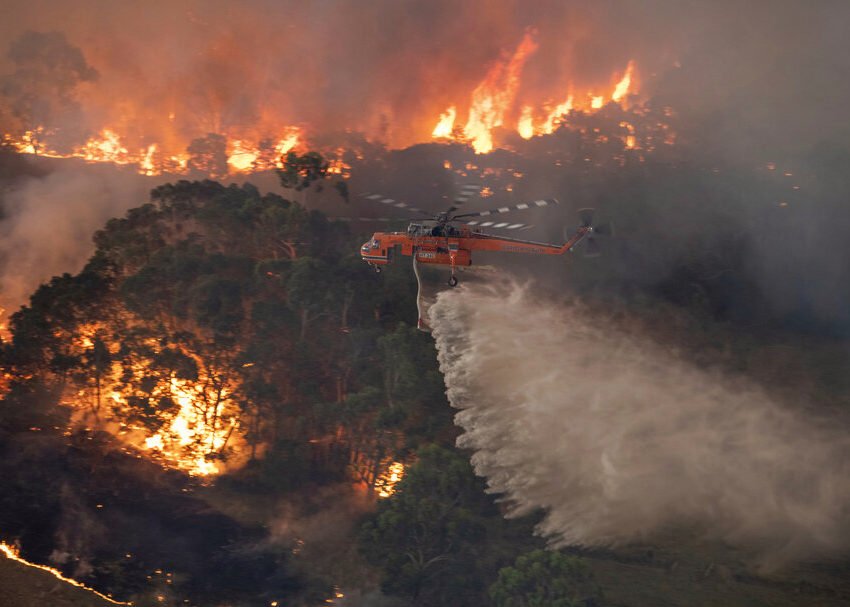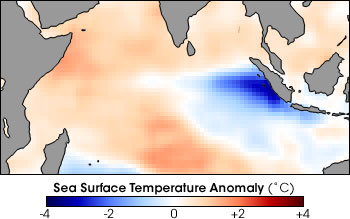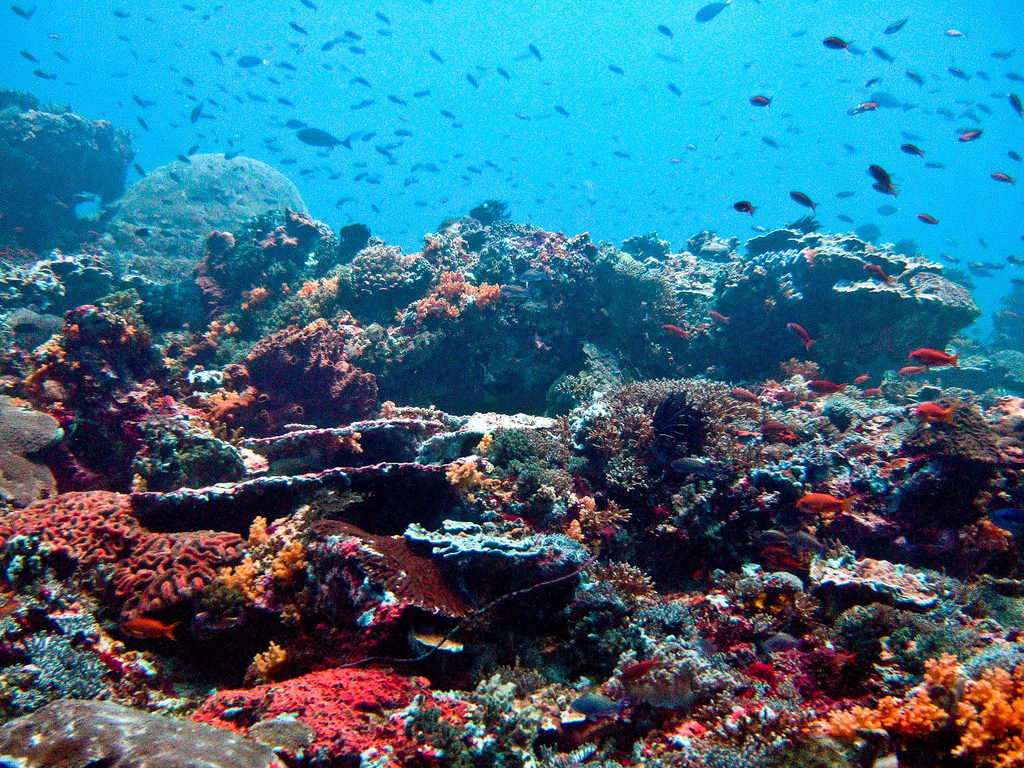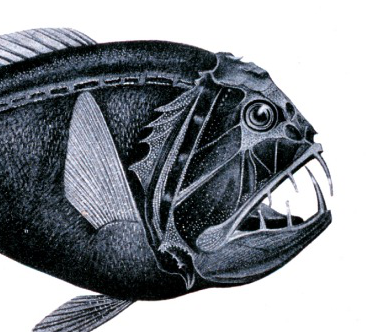What do wildfires have to do with the ocean?
Wildfires are wreaking havoc across the globe, from California to the Amazon to Australia, affecting human and natural systems alike. But when we talk about fires, the oceans are pretty far down the list of things we think of next. It is immediately clear how fires impact forests, farmland, cities, towns, grasslands, and so on. But how do wildfires affect the oceans? If we’ve learned anything from studying global ecology over the past few decades, it’s that systems around the world are all interconnected, and events that impact one will ultimately impact them all.
At this point, however, very little research has been done on how wildfires can affect marine ecosystems. In fact, the paper suggesting an answer to this question dates back to 2003, when researchers investigated a potential link between coral reef deaths and wildfires in Indonesia.

Lessons from Indonesia: Wildfires may contribute to coral reef death
In 1997, Indonesia experienced massive wildfires at the same time that an unprecedented coral die-off occurred off the coast of Sumatra, an island in Indonesia. Local reports indicated that at the time of the coral die-off, a harmful algal bloom, sometimes also called a red tide, occurred. Harmful algal blooms often occur when there are excess nutrients in the water, allowing algae to flourish. In many ecosystems, when algae die, bacteria break down the dead algae and in the process consume large quantities of oxygen, leaving behind oxygen-deficient waters for other organisms. On a coral reef, a harmful algal bloom can essentially choke the coral, causing them to asphyxiate and die. A team of researchers decided to investigate: could the 1997 wildfires have somehow led to the harmful algal bloom, which in turn killed the coral?
In order to test this hypothesis, the researchers needed to rule out other potential causes of the harmful algal bloom. The wildfires had been caused, in part, by the Indian Ocean Dipole (IOD), which is similar to El Niño in the Pacific. The IOD describes the relative temperature of the western Indian Ocean as compared to the eastern end. In 1997, the western end of the ocean was considerably warmer than the eastern end, and in Indonesia and Australia, cooler waters bring strong winds and intense drought on land. But the cooling event brought on by the IOD also had large impacts on the marine ecosystem, so it was possible that this event alone was enough to cause the harmful algal bloom and kill the coral.

Dr. Nerilie Abram and her colleagues looked at living and fossilized corals in the region where the die-off occurred and analyzed their chemical signatures. By studying the fossilized coral, Abram and her team were able to look at chemical records of climate over the past 7000 years. Through their chemical analyses, they determined that the unusual cooling event that occurred in 1997 was not entirely unique. Cooling events like 1997, sometimes even more extreme, occurred in the past, but none of these events corresponded with the same chemical evidence of coral death found in 1997. Therefore, it seems unlikely that the IOD alone caused the harmful algal bloom and killed the coral.

Abram and her colleagues hypothesized that an additional input of nutrients would have been necessary to cause such an extreme harmful algal bloom and coral mortality event. What could transfer so many nutrients to the ocean? Quite possibly the wildfires. Many previous studies show that dust and volcanic ash from the atmosphere have deposited iron and other nutrients into marine ecosystems, and in turn enhanced algae growth. It seems like 1997 provided the perfect storm to annihilate the coral reefs off Sumatra. The wind likely blew smoke from the fires over the reefs, and when rain eventually fell, it brought with it the iron-rich ash that facilitated algae prosperity and coral suffocation.
Is any of this related to what’s happening in Australia?
There is an interesting connection between Indonesia 23 years ago and Australia today: an Indian Ocean Dipole event occurred in 1997 and contributed to the massive wildfires in Indonesia, and and there is also an IOD event occurring right now which contributed to the wildfires in Australia. IODs describe the oscillation between colder and warmer waters on one side of the Indian Ocean; in 2019, colder water brought on by the IOD brought drought and wind to Australia, just as it did to Indonesia in 1997. The Australian wildfires are predominantly concentrated along the coasts, including many along the Northeast coast of Queensland, which is home to the vibrant and renowned, but also endangered, Great Barrier Reef.
Without clear experimental evidence of wildfire ash’s effects on coral reef health, it’s hard to say for sure that there is a direct cause-and-effect relationship. That means we need to do a lot more research in order to understand what the consequences of wildfires might be for marine ecosystems, especially in coastal regions like California and Australia. There may be little published research since the paper by Abrams and colleagues in 2003, but the impetus for the research is definitely out there, and we will hopefully learn more about how wildfires affect marine ecosystems soon. Efforts to understand climate and its ecological implications are vital because as human activity continues to cause wide-scale changes, these systems will increasingly see remarkable manifestations of global climate change in everything from massive wildfires to sea temperature rise. Only through further research on how these systems are connected can we understand how to prevent the destruction of coral reefs, forests, and other valuable ecosystems.
I am a PhD candidate at Syracuse University studying marine mammal communication. My research focuses on analyzing underwater recordings of whale calls in order to better understand whale behavior. I’m also interested in education, outreach, and science communication. When I’m not listening to whale sounds, you can find me curled up with a good book or complaining about how much it snows in Syracuse.
